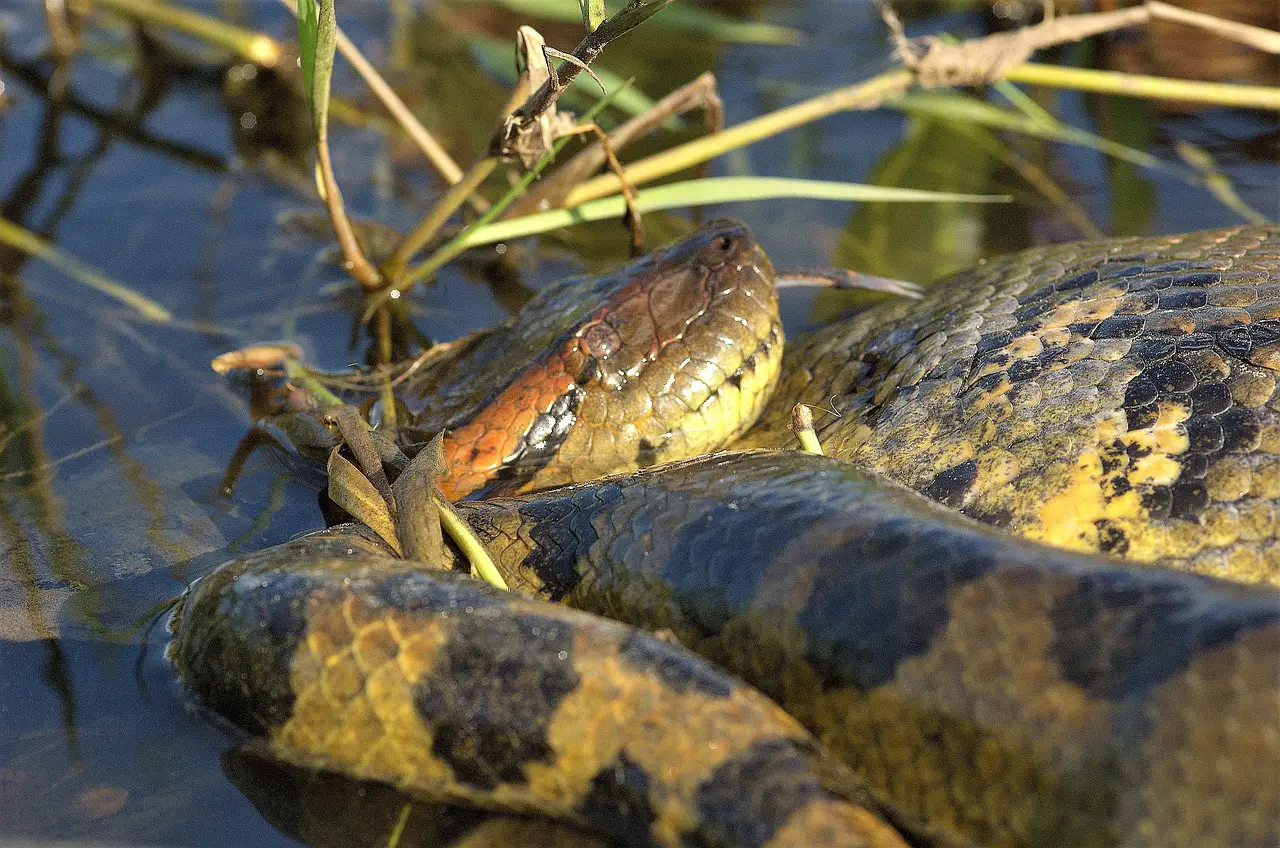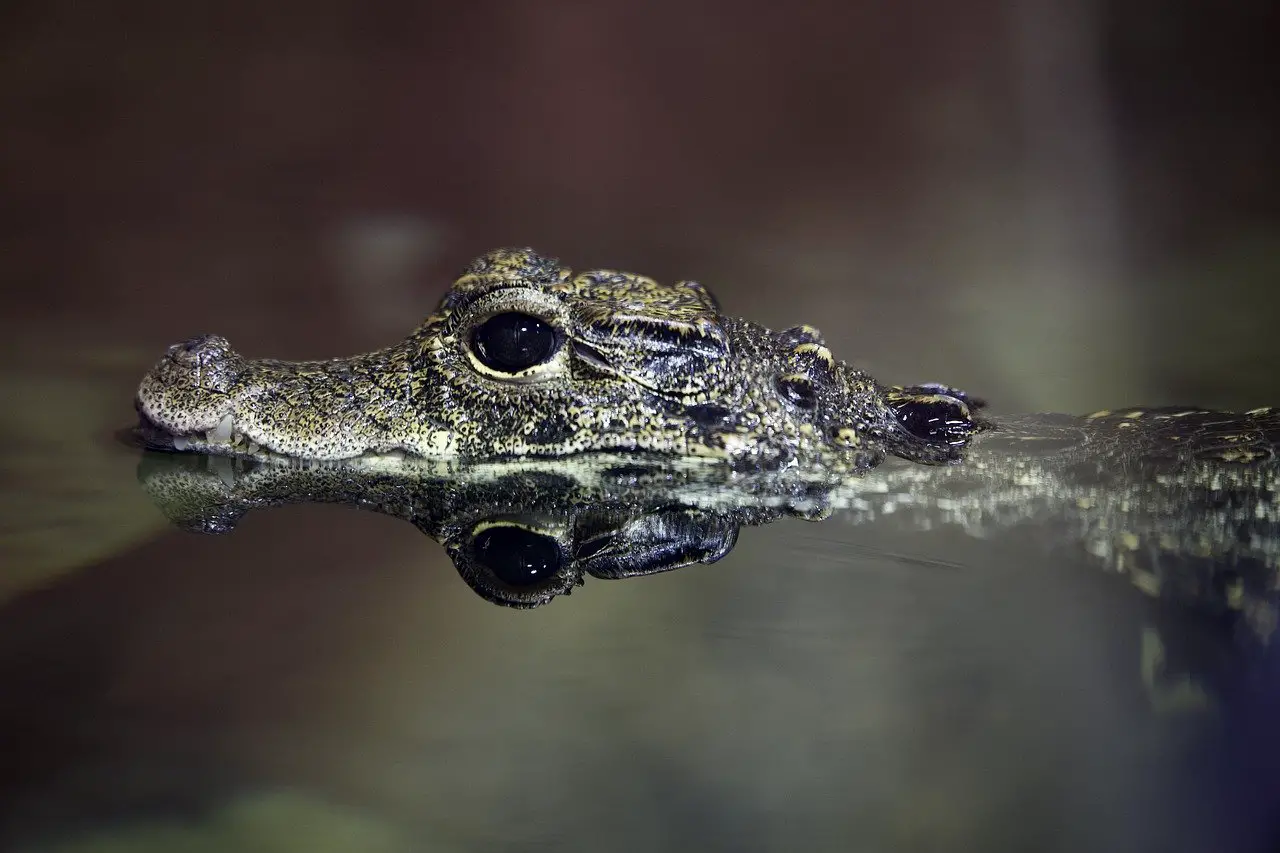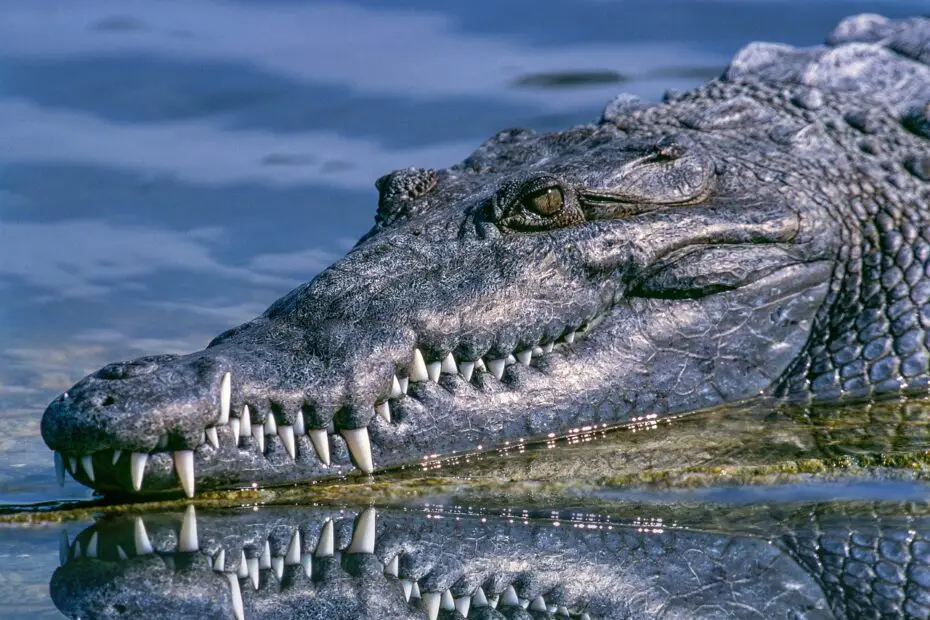In the ancient realm of swamps and rivers, the mighty crocodile reigns as an apex predator. These prehistoric reptiles have evolved to become formidable hunters, ruling their domains with power and precision. But even the apex predators have adversaries, and today we embark on a journey to explore the rare instances when crocodiles become the hunted rather than the hunter. So, What Eats Crocodiles?
You may also want to read about big crocodiles.
The Mighty Crocodile: An Apex Predator
The crocodile, a true icon of ancient times, is an apex predator known for its powerful jaws and ambush hunting style. These reptiles play a crucial role in the ecosystem by regulating prey populations and maintaining ecological balance.

Predators of the Nile Crocodile
Among the various crocodile species, the Nile crocodile stands out as one of the largest and most notorious apex predators. However, it is not invincible, and other predators dare to challenge its dominance.
Challenges to the Apex
Despite their formidable reputation, crocodiles face challenges from other predators in their environment. Competing for resources and territory, they occasionally find themselves in interspecies conflicts.
Human-Crocodile Conflict
The apex predator status of crocodiles often brings them into conflict with humans. Human activities, such as habitat destruction and hunting, pose significant threats to crocodile populations.
Crocodile Eggs and Hatchlings
While adult crocodiles may be powerful predators, their eggs and hatchlings are vulnerable to various predators. We’ll explore the threats faced by these young crocodiles and the strategies employed by their parents to protect them.
Cannibalism Among Crocodiles
Even within their own species, crocodiles are not immune to predation. Cannibalistic behavior is not unheard of among crocodiles, and we’ll delve into the reasons behind such occurrences.
What Eats Crocodiles? Crocodiles vs. Predators
Comparing the hunting capabilities of crocodiles with those of their predators reveals a fascinating dynamic. Crocodiles’ physical adaptations and hunting techniques make them highly efficient predators.

Predation on Large Crocodiles
What Eats Crocodiles? In some extraordinary cases, large crocodiles themselves have been preyed upon by other animals. We’ll explore these rare occurrences and attempt to understand the reasons behind them.
Human Influence on Crocodile Predation
As human activities encroach on natural habitats, crocodile predation dynamics can be disrupted. We’ll discuss the implications of human influence on these interactions.
Survival Strategies of Crocodiles
To survive as apex predators, crocodiles have developed various survival strategies. From their impressive camouflage to their skillful ambush techniques, crocodiles are well-equipped for survival.
Ecosystem Balance
Maintaining a healthy population of crocodiles is crucial for ecological balance. As apex predators, they play a vital role in controlling prey populations and shaping the structure of their ecosystems.
Conservation Efforts
Conservation measures are essential for protecting crocodiles and their habitats. We’ll discuss the efforts in place to preserve these majestic reptiles for future generations.
Fascinating Predation Stories
Real-life stories of crocodile predation and interactions with other animals offer captivating insights into the world of these apex predators. We’ll share some of the most intriguing accounts.
Conclusion
What Eats Crocodiles? While crocodiles may be apex predators, they are not exempt from the intricate web of predation in nature. The rare instances of their predation and encounters with other animals offer a glimpse into the delicate balance of life in the wild. Preserving these magnificent reptiles and their habitats is essential for maintaining the ecological harmony of their environments.
FAQs:
1. Do crocodiles have any natural predators?
- Yes, despite being apex predators, crocodiles face challenges from other predators, both within their own species and from other animals.
2. Are crocodiles endangered?
- Some crocodile species are classified as endangered due to habitat loss and hunting, but others remain relatively stable in their populations.
3. Can crocodiles be found in saltwater and freshwater environments?
- Yes, some crocodile species can inhabit both saltwater and freshwater environments.
4. Do crocodiles feed on other crocodiles?
- Yes, cannibalistic behavior has been observed among crocodiles, particularly towards younger individuals.
5. What are the ecological consequences of disrupting crocodile populations?
- Disrupting crocodile populations can lead to imbalanced ecosystems, affecting prey populations and other species’ interactions.
